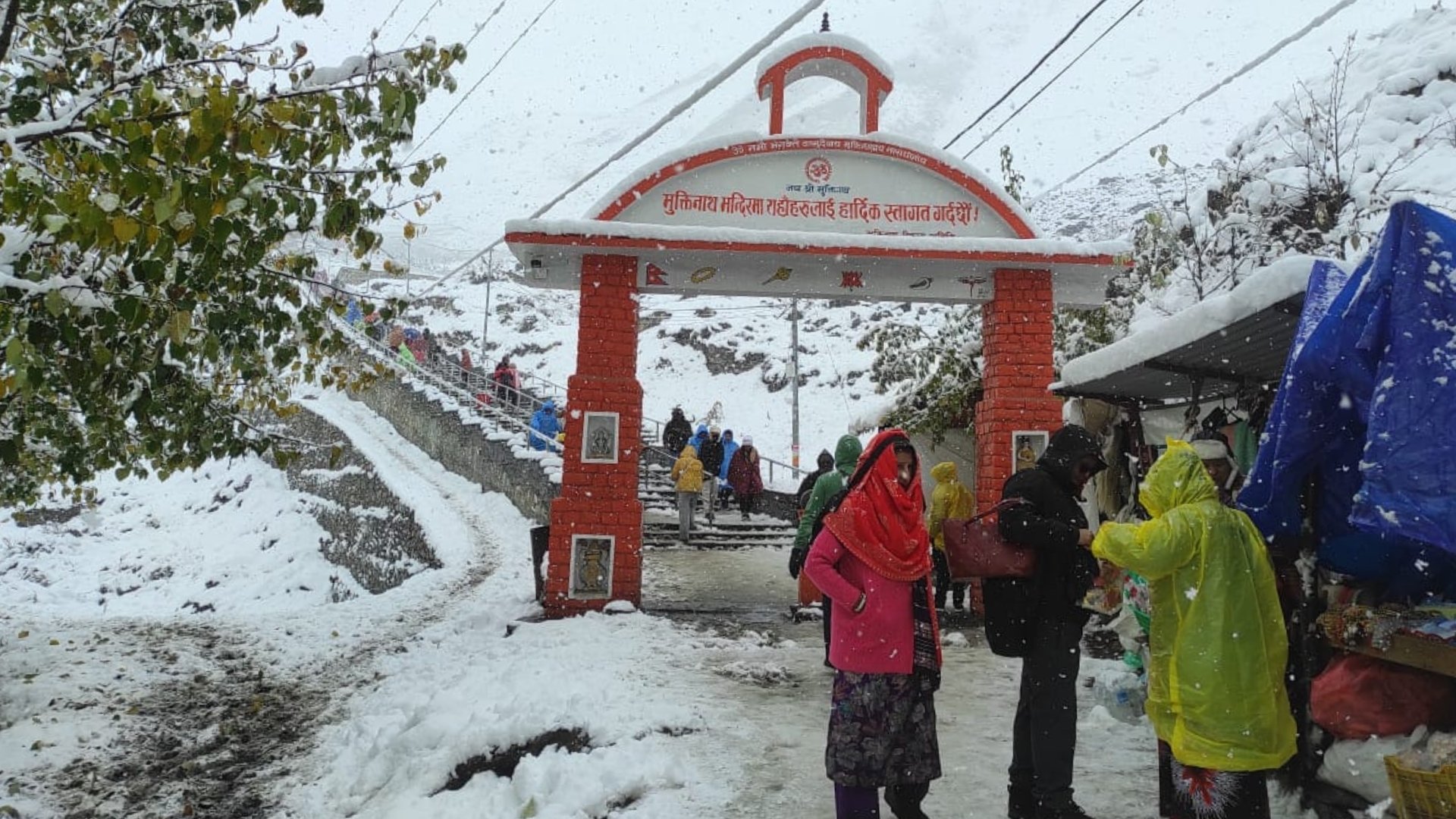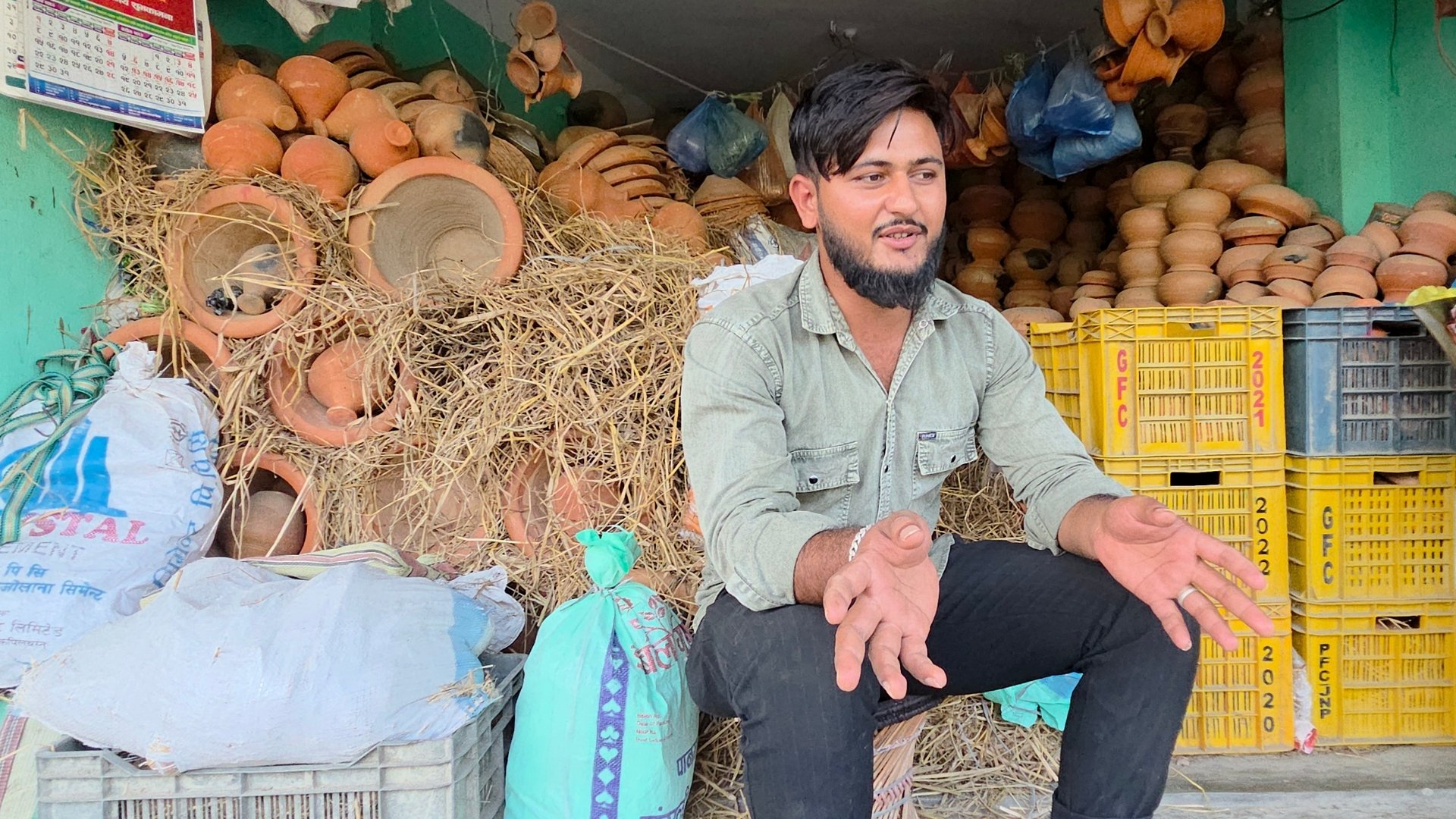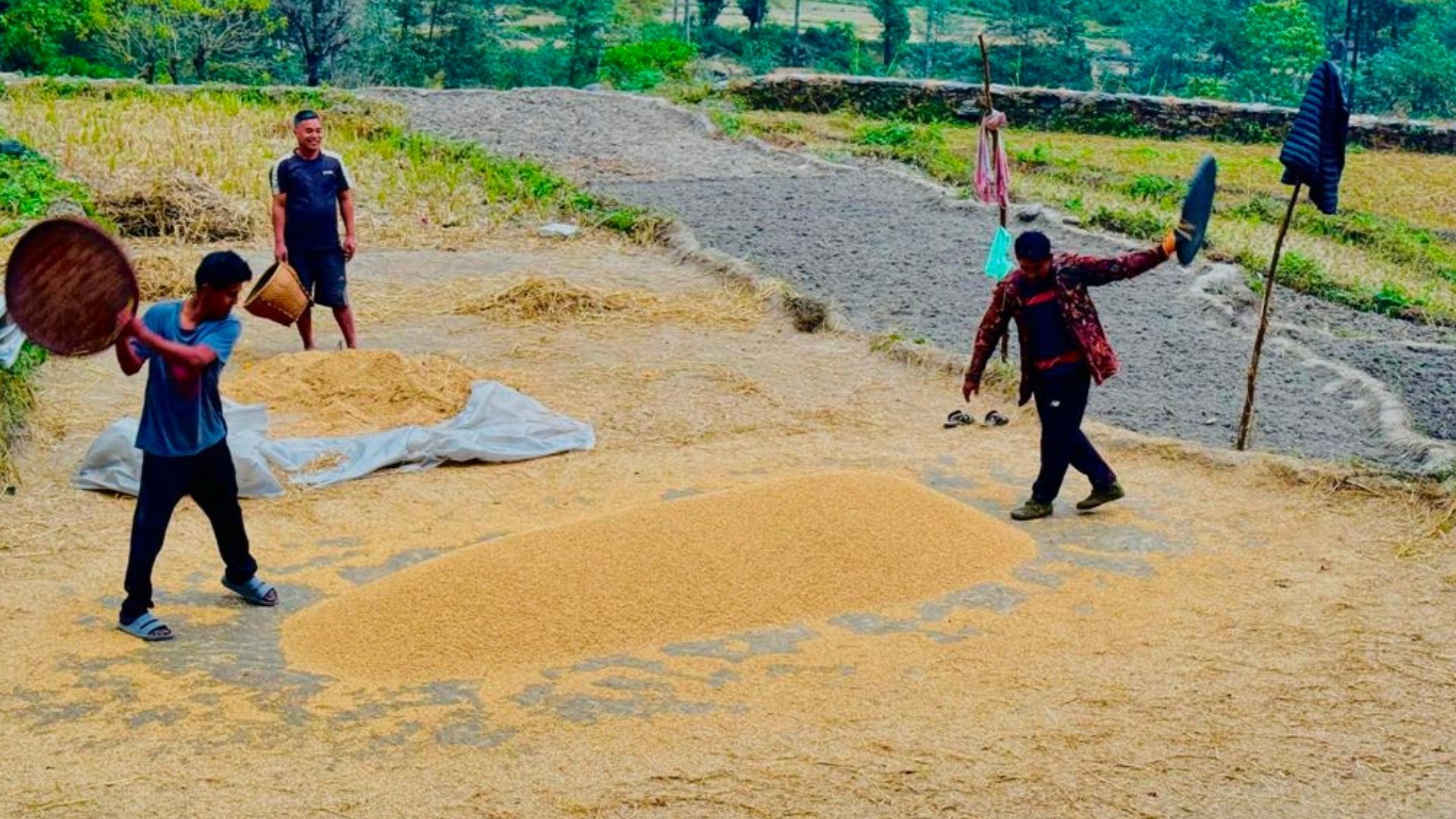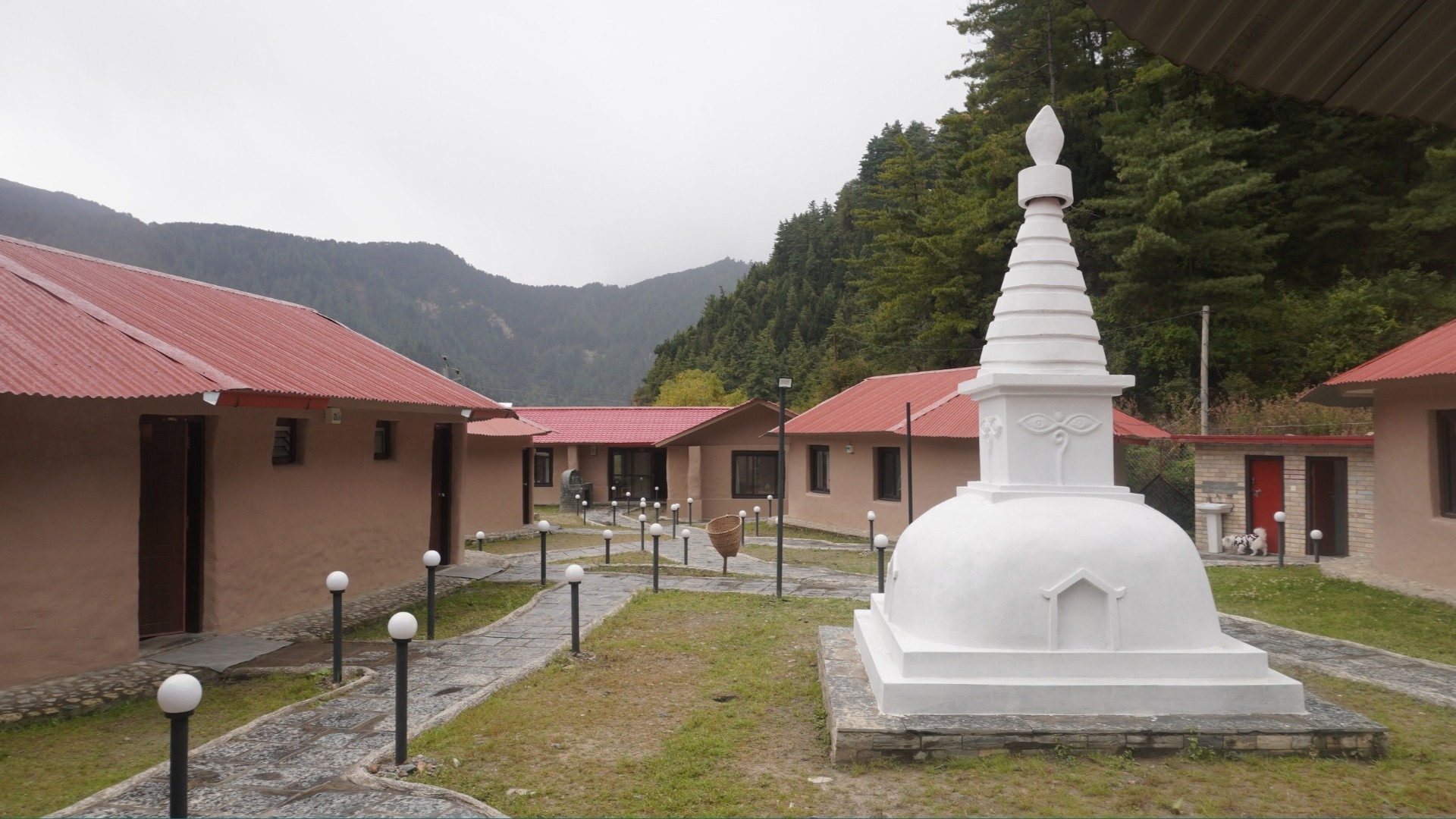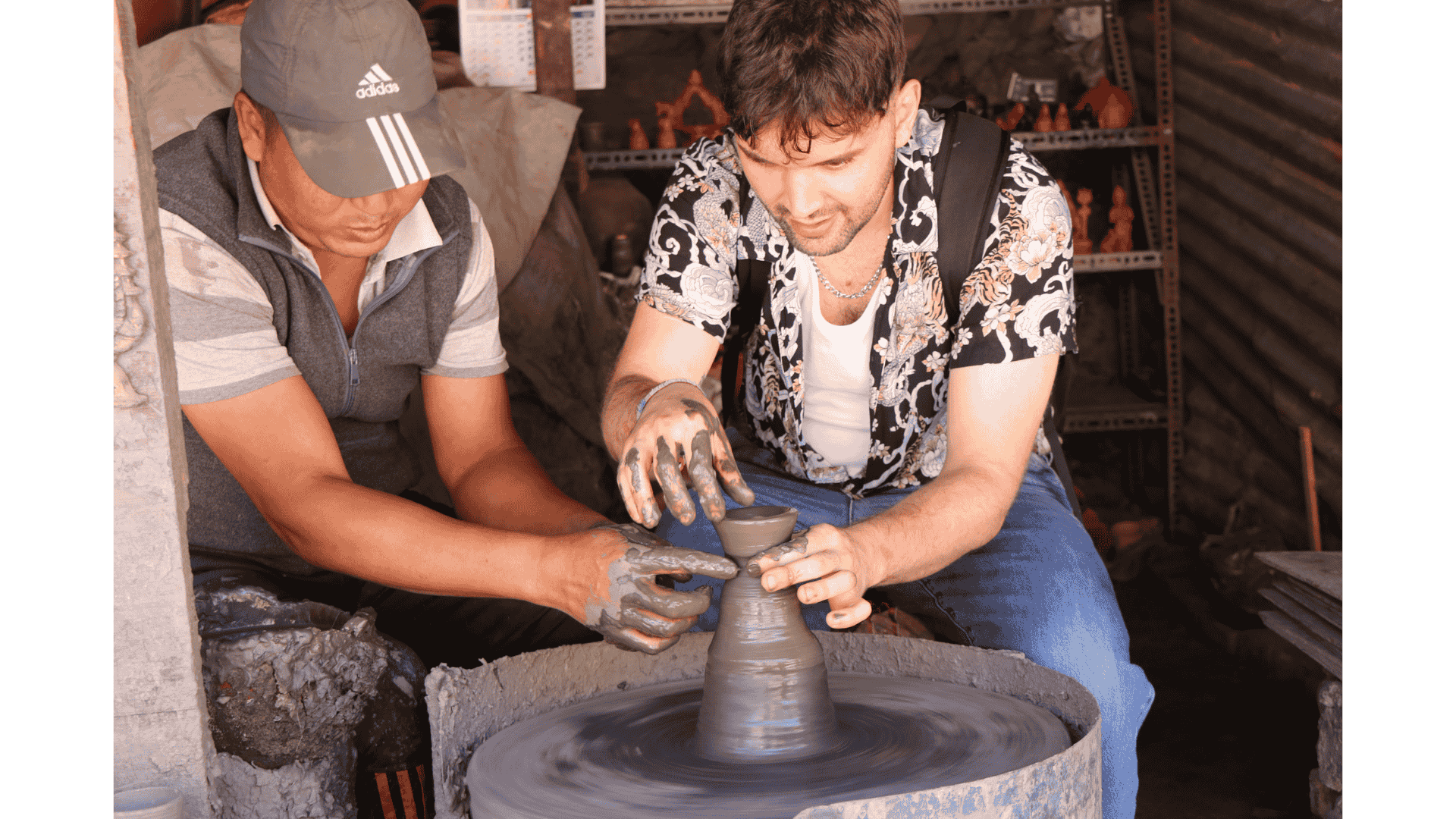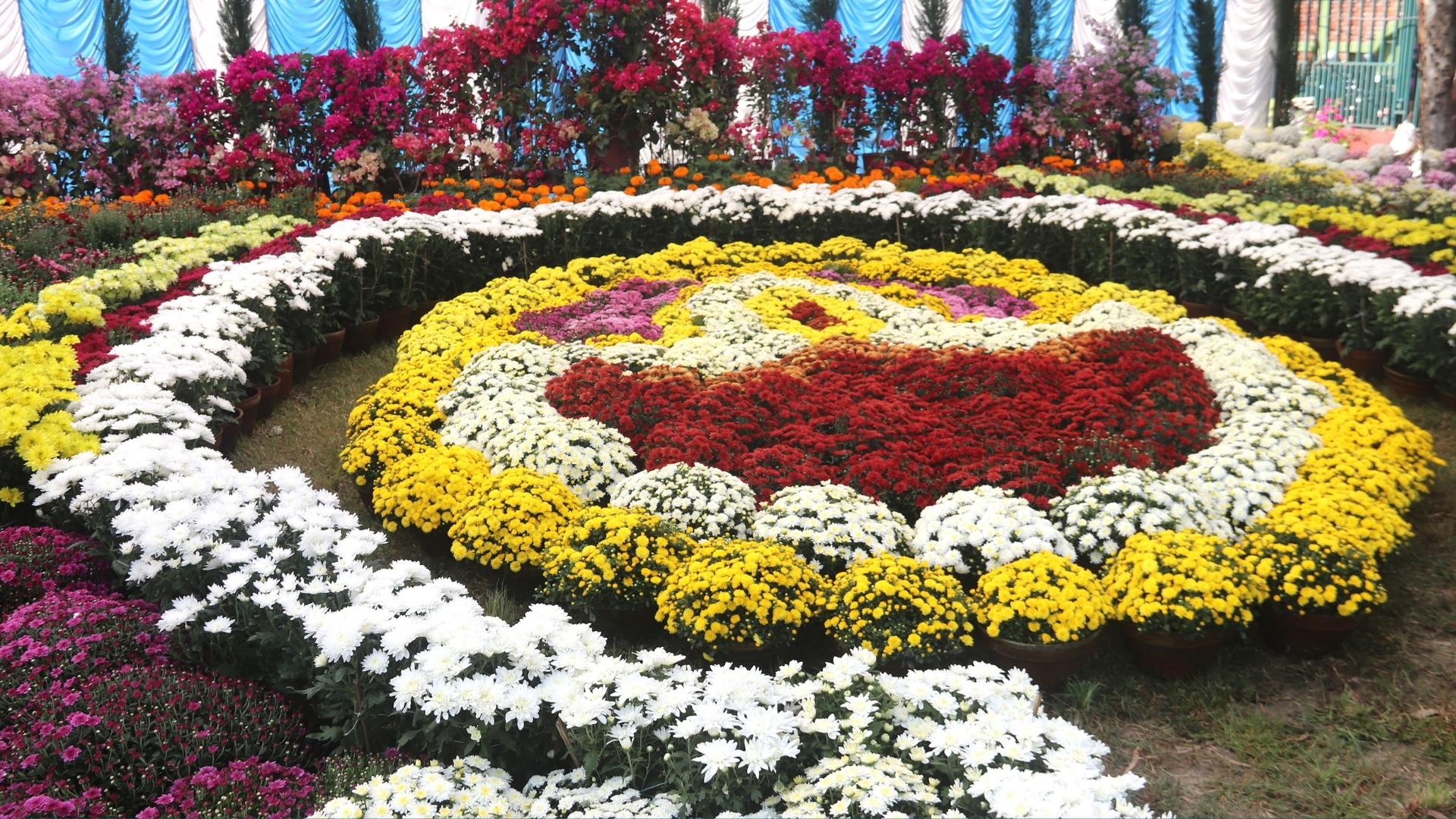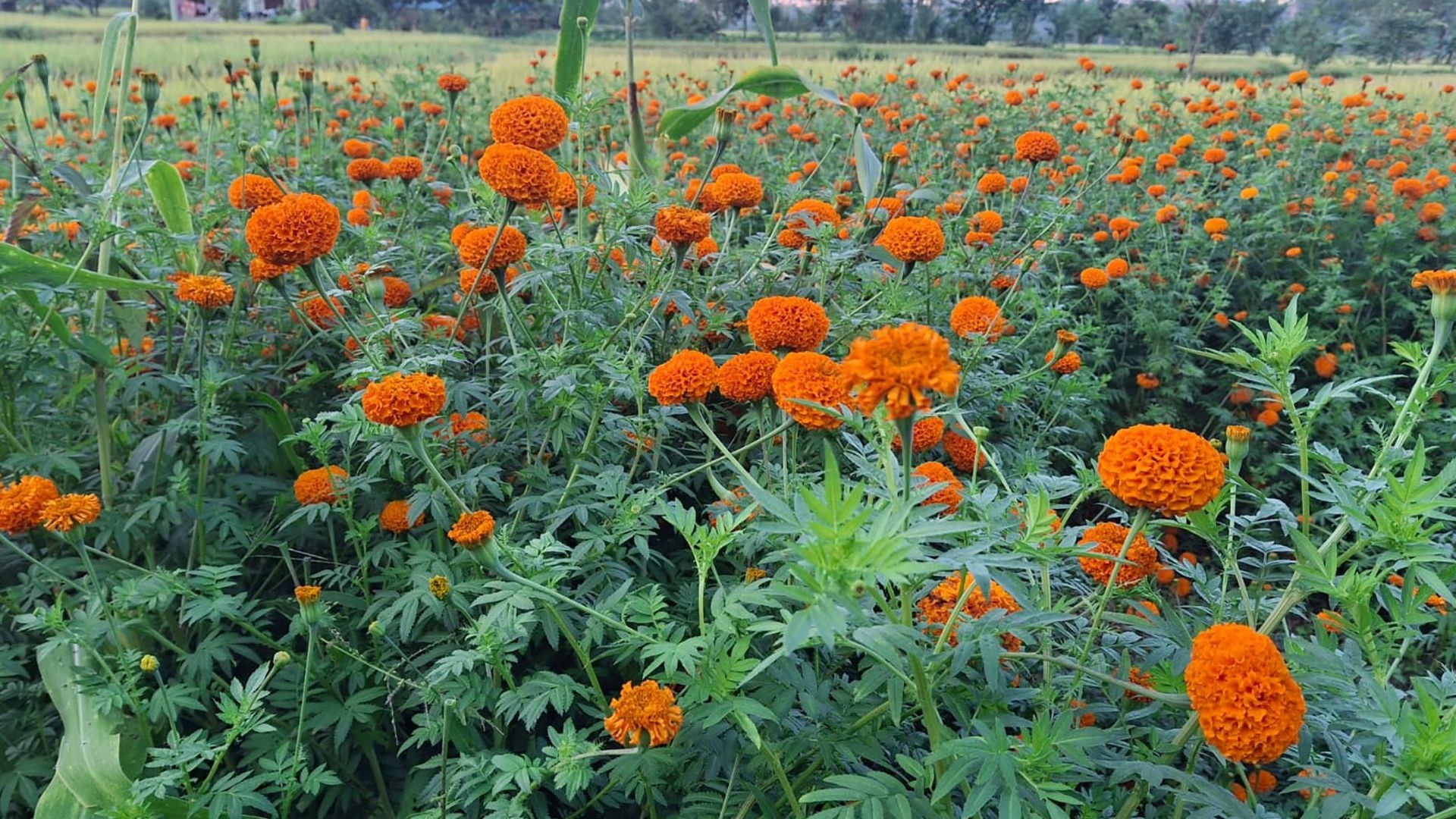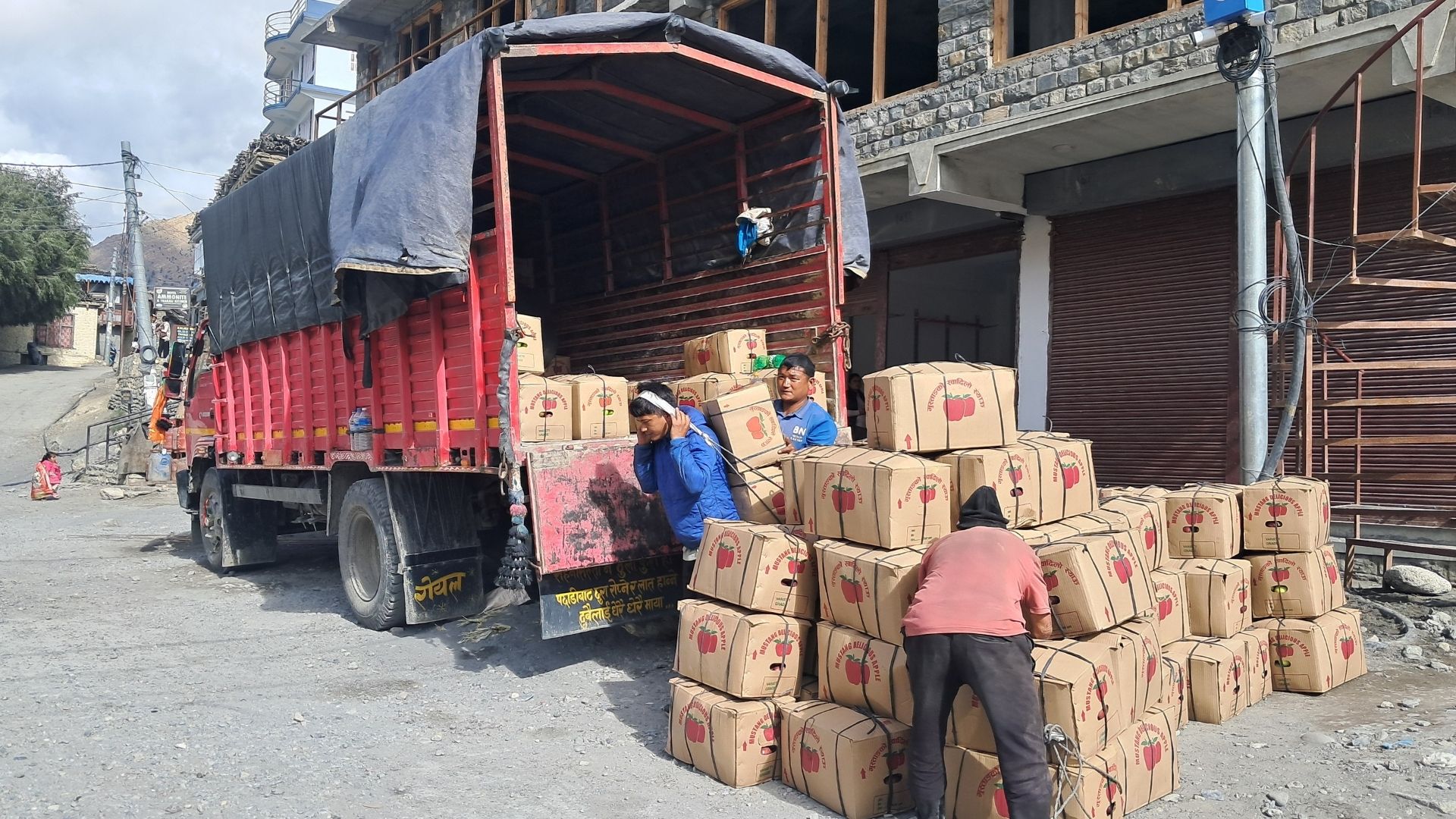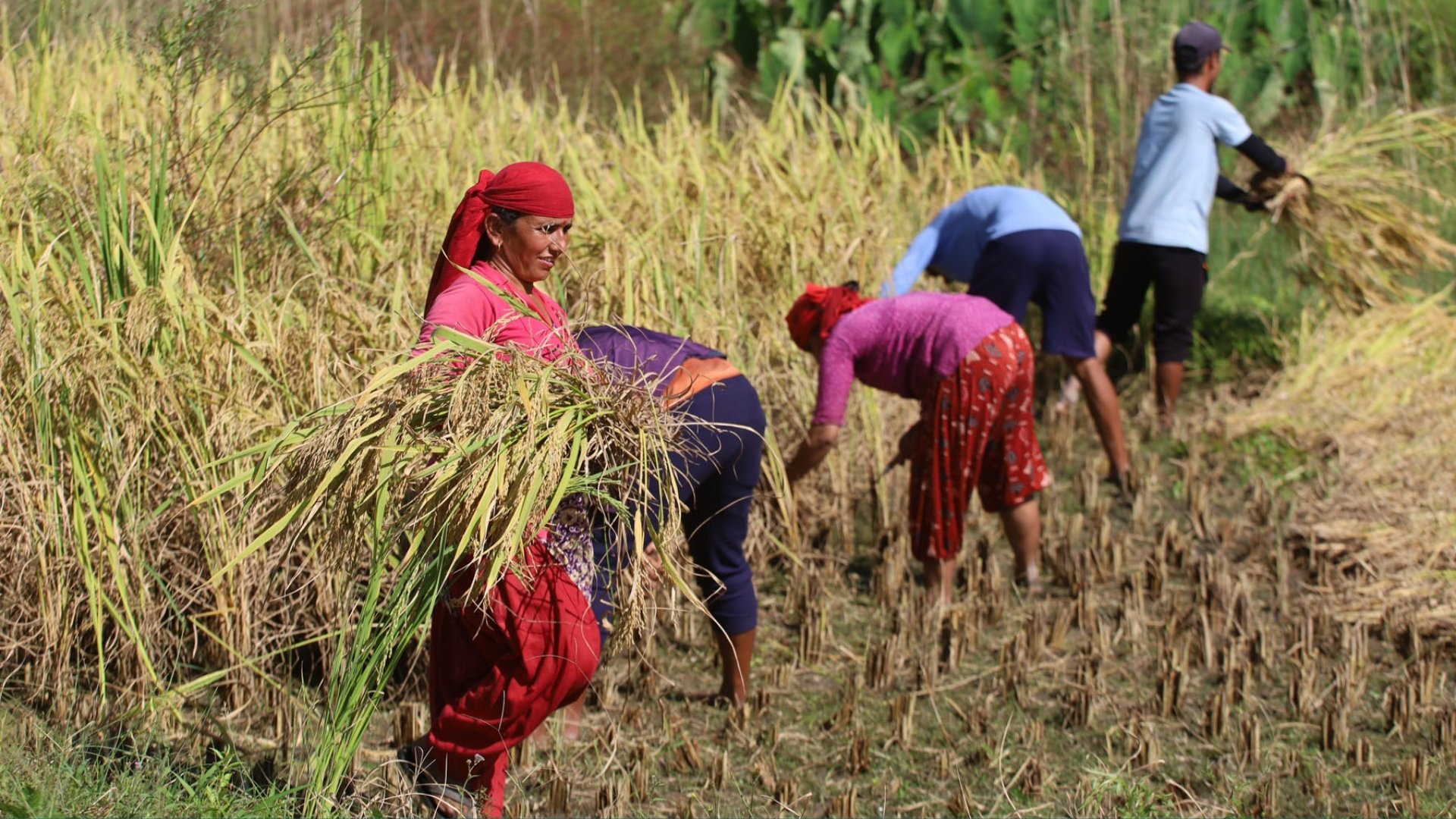Pilgrims visiting the sacred site of Muktinath are struggling due to intense cold and frozen ponds, making it nearly impossible to bathe in the holy kund (ponds) or under the 108 sacred water spouts as per tradition.
For the first time in three years, the Himalayan district of Mustang has experienced substantial snowfall — and that too unusually early, in the Nepali month of Kartik (October–November). The snow, which usually falls toward the end of Mangsir (December), began early this year and has continued since morning.
In recent years, Mustang residents had not witnessed heavy snowfall, which had negatively affected agriculture, tourism, and biodiversity. This year, snowfall has been recorded at elevations above 3,000 meters above sea level, covering areas from Ghami in Upper Mustang to high mountain passes and ridges.
The famous pilgrimage site Muktinath Temple and its surrounding areas continue to experience heavy snowfall. Continuous rainfall has been reported from Chhusang in Waragung Muktikshetra–3 down to lower settlements, while higher regions are blanketed in snow. Popular trekking routes — including the Thorong La Pass trail via Manang, Jomsom–Thini–Tilicho, Namukh Lek to Mesokundo Pass, and the Dhaulagiri Icefall’s Dampus Peak route — have been obstructed due to thick snow accumulation.
Similarly, snow has disrupted vehicular movement along the Korala road in Upper Mustang. The local administration had already issued a public notice advising tourists and trekkers to avoid high-altitude trails. Pilgrims visiting Muktinath are now facing difficulties as snow and freezing temperatures have made travel and temple visits challenging. Vehicles and travelers returning from Muktinath are reportedly stuck near Khhing due to heavy snow on the roads, according to Ward Chairperson Pravesh Gurung of Waragung Muktikshetra–1.
Local police have also requested the public to refrain from traveling between Kagbeni and Muktinath for safety reasons. Although the snowfall has affected the daily lives of locals and tourists, no human or physical damage has been reported so far, the district administration confirmed.
Ward Chairperson Gurung remarked that while snowfall in the Himalayan region is natural during the winter, this year’s early snowfall in Kartik has been surprising. Despite causing minor damage to crops such as apples, Gurung said the snow has brought significant benefits to agriculture, tourism, and biodiversity overall.
The post-harvest period for apples in Mustang is in its final stage. Typically, apple trees shed their leaves by Mangsir and enter dormancy. “Had the snowfall occurred after the leaves fell, it would have been ideal — it came a bit early,” Gurung said. “Still, even with slight crop damage, the snowfall overall is beneficial for farmers, tourism entrepreneurs, and the ecosystem.”
According to Dr. Lalmani Aryal, Chief of the Veterinary Hospital and Livestock Service Center, this early snowfall will greatly benefit pasturelands in high-altitude areas. In recent years, irregular snowfall caused by climate change had prevented grass from growing naturally, creating a crisis for livestock grazing. The fresh snow is expected to rejuvenate these pastures, improving conditions for herders.
Due to the absence of timely snowfall, wild animals in recent years had begun descending closer to human settlements in search of food, leading to increased conflict between people and snow leopards. Dr. Aryal expressed hope that the restoration of pasturelands will reduce such conflicts and support both livestock and wildlife.
Similarly, Agriculture Knowledge Center Chief Rajesh Gurung said this year’s snowfall will greatly benefit apple orchards and cereal crops. As apple harvesting has just concluded and preparations for garden management begin next month, the snow is considered a blessing for farmers. According to him, snowfall softens the soil, replenishes underground moisture reserves, and acts as natural irrigation — all positive signs for the upcoming agricultural cycle.
The snow will also serve as a natural irrigation source for crops such as barley, buckwheat, wheat, and maize, and help reduce pest and disease infections, ultimately boosting productivity, Gurung added.
If the snowfall continues for two or three more rounds this season, Muktinath could host a National Ski Championship, said Suraj Gurung, operator of Hotel Grand Sambala in Muktinath. He explained that the event could not be held for the past three years due to a lack of snow, though the Nepal Ski Association had successfully organized three editions in earlier years. “There hasn’t been good snow here for three years. Now that it’s snowing even in Kartik, if this continues, we’ll inform ski teams once the snowpack is sufficient,” he said.
The ongoing snowfall is also expected to boost tourism, according to Kaisang Thokya Thakuri, President of Janapriya Youth Club. “Tourists come to Mustang to enjoy and play in the snow,” he said. “Although it will take some time for the snow to settle firmly, if it continues for another couple of days, the villages and hills will be beautifully white — which would be great for tourism.”
Overall, while the early snowfall has brought temporary hardship for travelers and pilgrims, it has filled the local community with optimism — promising renewed vitality for agriculture, livestock, and tourism across Mustang’s rugged highlands.


